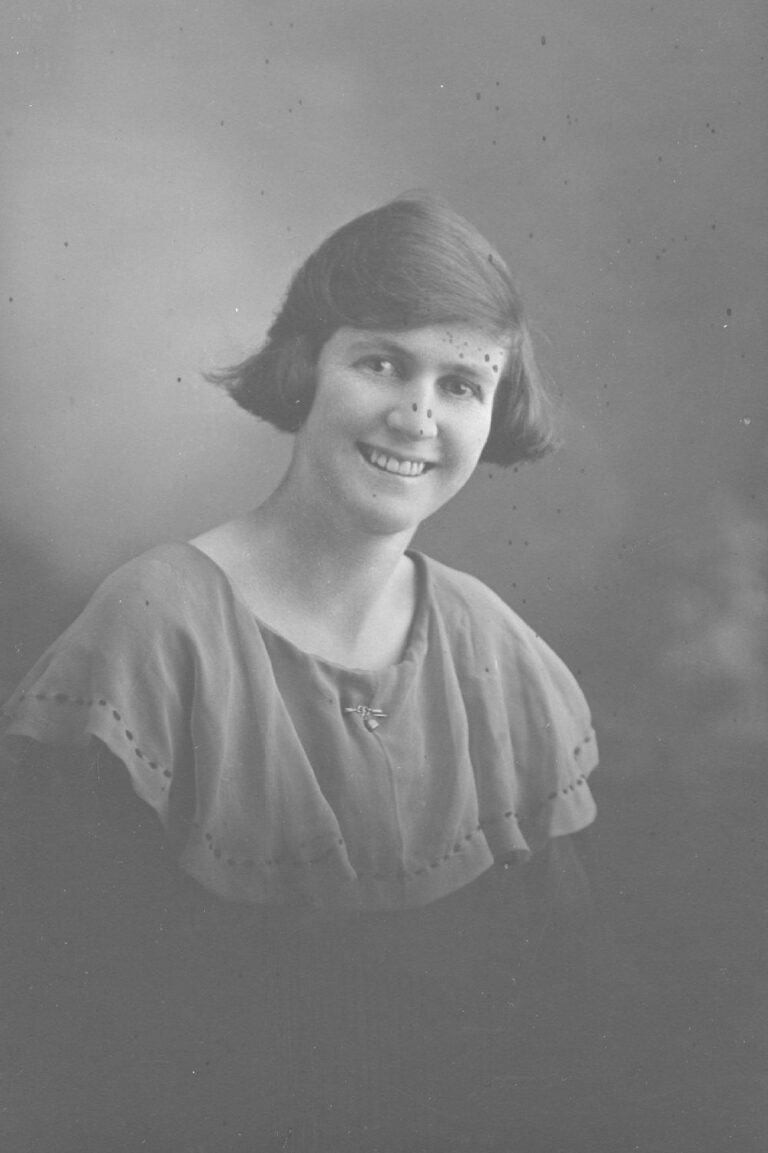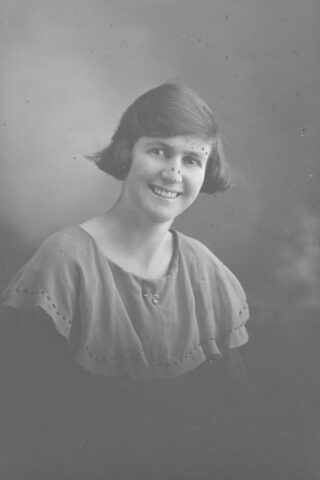- Entry type: Person
- Entry ID: AWE0767
Curley, Sylvia
- OAM

- Born 8 November 1898, Duntroon, Australian Capital Territory, Australia
- Died 24 March 1999, , Australian Capital Territory, Australia
- Occupation Advocate, Farmer, Local historian, Nurse
Summary
Sylvia Curley qualified as a nurse in 1926 and spent her early years of nursing in country New South Wales. She worked for the Canberra Community Hospital (later known as the Royal Canberra Hospital) from 1938 until her retirement in 1966 as deputy matron. In her ‘retirement’ years she ran a nursing employment agency in Canberra and was a strong advocate for changes to nurses’ education. In 1994 she donated her family home, Mugga Mugga, to the people of Canberra and oversaw its development into an environmental education centre. Sylvia Curley was awarded the Medal of the Order of Australia on 8 June 1992 for her services to nursing, to local history and to the National Trust.
Details
Sylvia Curley was born into a pioneering Canberra family and grew up on Duntroon estate, before moving to Mugga Mugga homestead in 1913.
She trained as a nurse at Goulburn for four years, and at Leeton and Narrandera she developed her lifelong commitment to patient care and student nurses education. As matron at Gundagai, in five years she changed a run-down hospital to one described by the then New South Wales (NSW) minister for health as ‘the cleanest and best of its size’, which she achieved through influencing administrators and community fundraising. During her time there she took leave without pay to further her training in New Zealand and Sydney.
Curley returned to Canberra in 1938 to take up the position of sub-matron of the then Canberra Hospital, only to find that the hospital had been the subject of a royal commission. Staff morale was very low and a group of nurses had resigned in protest at the actions of the hospital board and the sacking of the previous matron. Not to be deterred, she set about improving the hygiene of the kitchen, management of food supplies, menus, diets and she paid from her own salary for a Coolgardie safe to be built when the hospital board refused. Curley also introduced the tray system for patient meals.
Concerned at the lack of social lives and the rule of no visitors to nurses quarters Curley organised hospital balls and dances, largely funded from her own pocket, which were great successes and attracted up to 800 guests. She organised fetes and other fundraising events for a student nurses reference library, and for years she lobbied hospital management for improved nursing training and superannuation.
Curley went on largely self-funded study tours to New Zealand, the United Kingdom, the United States and Canada, and reported back on developments in hospital practice and nurse training, showing Australia to be behind the times. Her efforts saw the establishment in 1957 of the Nursing School in Canberra, the second in Australia, which was based on a model she had seen in New Zealand.
In 1964 a nursing home on the site of the former nurses quarters at Canberra Hospital was named in Curley’s honour. In 1966, after twenty-nine years at the Royal Canberra Hospital, she retired from nursing, but without superannuation she was forced to continue working and she started an employment agency. This she ran for twenty years, during which time a dental nurse training course at Canberra Technical College was established at her suggestion and she lobbied for a medical records course for secretaries.
On retiring she set herself the project of documenting the history of the Canberra region, most of which she knew first hand, and was anxious for children to understand how things were in Canberra’s past.
At the age of 91 she was recognised with a Medal in the General Division of the Order of Australia for services to nursing, local history and the National Trust.
After the death of her last family member, she maintained her family’s Mugga Mugga property herself in excellent condition, receiving praise from the Department of Agriculture on her management of the farm. In 1995 Curley bequeathed the historic 17ha property to the people of Canberra, and established an education centre for environmental studies and turned the homestead into a cottage museum, which she said was the only museum in Canberra to contain original pieces of property of a pioneering family.
In 1998 her memoirs were published documenting her life at Duntroon and Mugga Mugga and her ‘three careers’ as a nurse, employment consultant and lessee farmer. At her 100th birthday thanksgiving mass, she described the Mugga Mugga education centre as her vision and dream. She died in the same year.
Digital resources
Published resources
- Book
-
Resource Section
- Curley, Sylvia (1898 - 1999), Biographical Entry, 2002, http://www.asap.unimelb.edu.au/bsparcs/biogs/P004135b.htm
-
Resource
- Trove: Curley, Sylvia (1898-1999), http://nla.gov.au/nla.party-741067
-
Site Exhibition
- From Lady Denman to Katy Gallagher: A Century of Women's Contributions to Canberra, Australian Women's Archives Project, 2013, http://www.womenaustralia.info/exhib/ldkg
